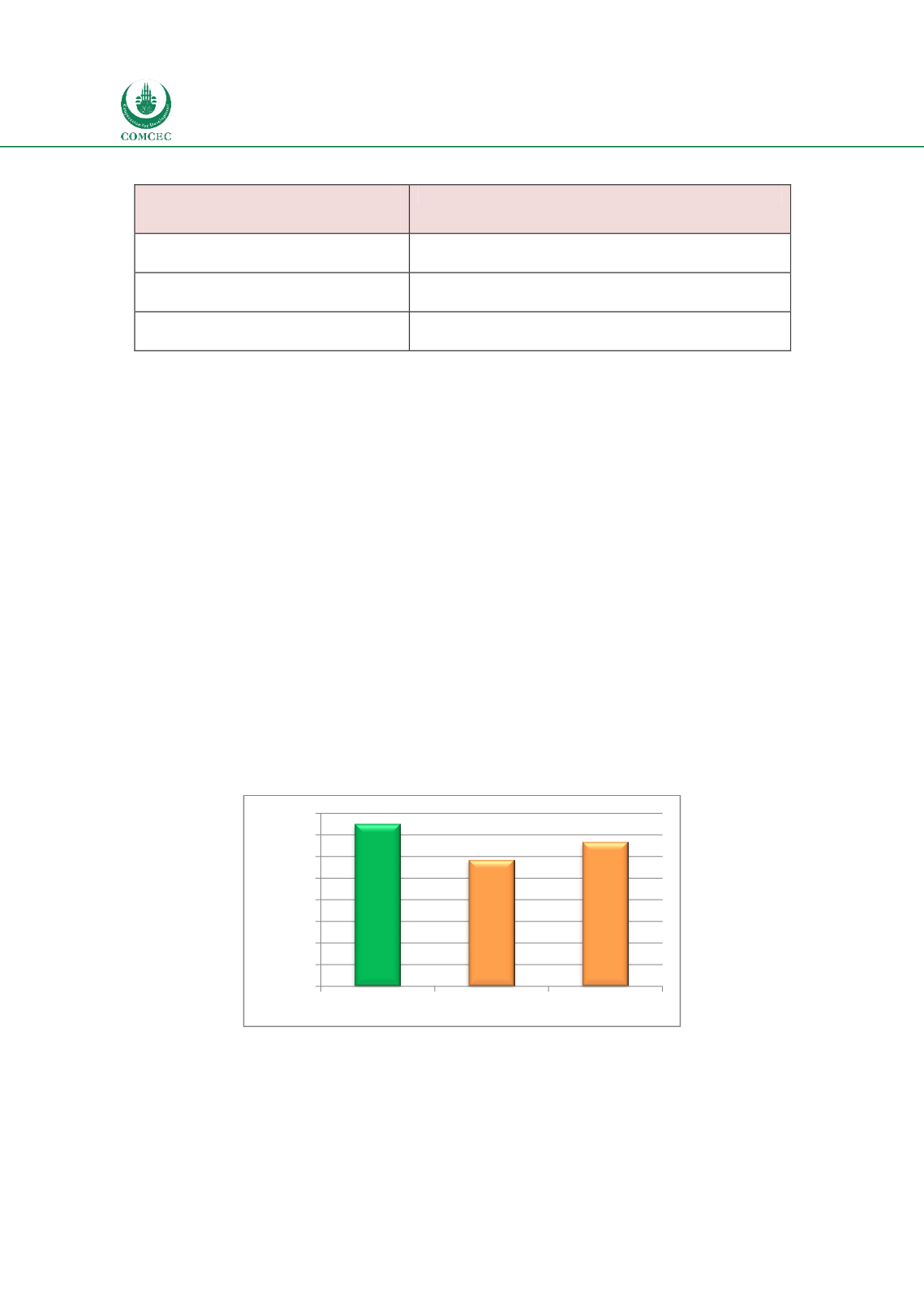

National and Global Islamic Financial Architecture:
Problems and Possible Solutions for the OIC Member Countries
198
Table
6.10: Status of Human Capital and Knowledge Development
Human Capital & Knowledge
Development
Countries
Initiatives by public bodies
Egypt, Malaysia, Nigeria, Oman, Pakistan, Saudi
Arabia, Sudan
Initiatives
by
educational
institutions/universities
Bangladesh, Egypt, Indonesia, Malaysia, Nigeria,
Pakistan, Saudi Arabia, Senegal, Sudan, Turkey, UAE
Private
sector
initiatives
including NGOs
Bangladesh, Indonesia, Pakistan, Senegal, Turkey,
UAE
6.2.
Overall Statuses of Islamic Finance Architectural Institutions
In this section, an evaluation of the infrastructural institutions for the whole sample of 12
countries is carried out. The status of the different elements of the Islamic financial
architecture is based on the following criteria: if the infrastructural institution exists in less
than 50% of the countries then it will be deemed ‘underdeveloped’ (identified in red in the
charts); if the infrastructural institution exists between 50% to 75% of the countries then it
will be considered ‘developing’ (identified in amber in the charts); and if the infrastructural
institution exists in more than 75% of the countries then it will be rated ‘developed’ (identified
in green in the charts).
6.2.1.
Legal Infrastructure
Chart 6.1 shows the overall status of the countries with different types of Islamic financial laws.
While 75% of the countries have Islamic banking laws, 58.3% have laws supporting the takaful
sector and 66.7% laws relate to Islamic capital markets. The results indicate that while on the
average the status of financial laws in the sample countries for the banking sector are
developed, the legal statuses for the takaful and capital markets are ‘developing’. Thus, there is
a need to strengthen the laws for takaful and Islamic capital markets.
Chart
6.1: Legal Infrastructure--Countries with Islamic Financial Laws (% of total)
Chart 6.2 shows the status of other legal infrastructure institutions. Note that in three
countries the tax laws are not relevant either because the whole financial sector is Islamic
(Sudan) or due to the absence of taxes that affect financial transactions (Saudi Arabia and
UAE). In the remaining nine countries, 66.7% of them adjust tax laws to accommodate the
special features of Islamic finance transactions, thereby leveling the playing field with
75,0
58,3
66,7
0
10
20
30
40
50
60
70
80
Banking
Takaful
Capital Market
Percentage of total
















